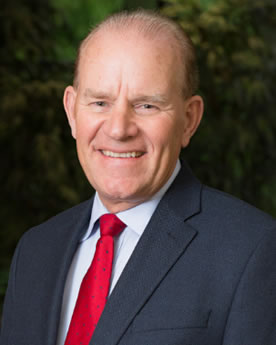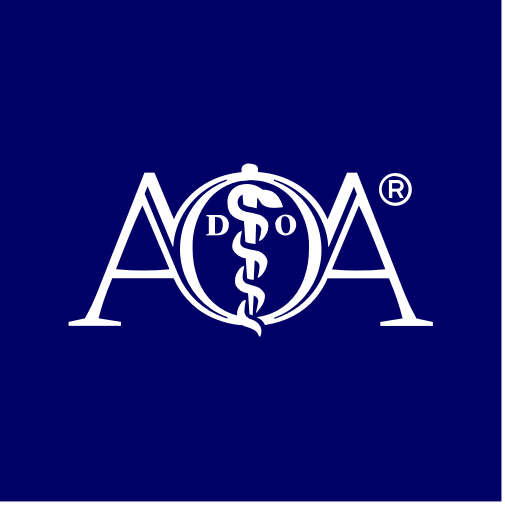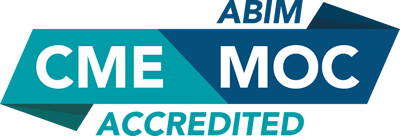
COURSE CREDITS & HOURS
16 AMA PRA Category 1 Credits™16 ACPE Credits
16.0 Contact Hours
16 (part II) MOC points in medical knowledge in the American Board of Internal Medicine's (ABIM) Maintenance of Certification (MOC) program
4 Hours of Pharmacology for Nurse Practitioners
COURSE FEES
TARGET AUDIENCE
PROGRAM PURPOSE
This educational activity will present attendees with key updates in clinical topics fundamental to the care of the adult inpatient, including major advances from the medical literature. Additionally, this we will review fundamental skills basic to the practice of hospital medicine, such as diagnostic test interpretation and medical decision making. The content will allow for attendees to practice evidence-based medicine grounded in current evidence and literature applicable to internal medicine and associated specialties.
- Hospital Medicine Literature Highlights - Cardiology, Cancer, Nephrology
- Describe key updates & current literature related to the modern practice of hospital medicine
- Hospital Medicine Literature Highlights 2 - Infectious Disease, Pulmonary Disease, Rheumatology
- Describe key updates & current literature related to the modern practice of hospital medicine.
- Tick Borne Diseases
- Recognize key clinical features of tick borne diseases.
- Test Interpretation and Medical Decision Making
- Interpret medical test results in a scientific manner using Bayes' Theorem based strategies or a Fagan Nomogram.
- Venous Thrombosis and Pulmonary Embolism - prophylaxis and treatment
- Discuss the mechanisms of acute pancreatitis
- Describe the current standard of care for prophylaxis and treatment of venous thrombosis in a hospitalized patient.
- Special Considerations for the Geriatric Patient
- Describe key treatment considerations for geriatric inpatients.
- Sepsis and Shock
- Describe the current state of sepsis recognition and treatment, in accordance with widely accepted published guidelines.
- Peri-operative management
- Manage perioperative patients using validated tools and strategies to optimize outcomes
The importance of establishing a strong clinician-patient bond and addressing psychosocial and spiritual concerns when needed will be emphasized.
- Health Promotion: Encouraging a Healthy Body, Mind, and Spirit
- Assess the patien's current state of physical, psychological, and spiritual health
- Analyze the patient's current dietary and exercise practices
- Discuss an individualized health-promotion strategy for the patient.
- Oh, My Aching Head :
Managing Migraine, Tension,
and Cluster Headaches
- Explain the classification of headaches
- Discuss the appropriate use of brain imaging in evaluating patients with headache
- Describe the appropriate use of abortive and preventive medications in the treatment of migraine.
- What Goes Up Must Come Down! :
Diagnosis and Management of Hypertension
- Describe the appropriate measurement and classification of hypertension
- Discuss the laboratory testing and imaging needed to diagnose common causes of secondary hypertension
- Describe the major classes of anti-hypertensive treatment and discuss the type of patient most likely to benefit from each class.
- "Get Me Out of Here!": Panic Disorder and Agoraphobia in the Primary Care Setting
- Elicit and assess symptoms of panic disorder and agoraphobia
- Apply appropriate lifestyle modification and stress management skills, including muscle relaxation, breathing control, thought-stopping, and cognitive restructuring
- Recognize and manage side effects of anxiolytics.
- Male Sexual Disorders: Treatment of Hypogonadism, Erectile, and Ejaculatory Dysfunction.
- Elicit a thorough, non-judgmental sexual history
- Describe appropriate laboratory and radiologic testing in the evaluation of male sexual problems
- Discuss the effects, risks, and benefits of testosterone replacement and medications to improve the patient's erectile and ejaculatory function
- Enhancing Clinician-Patient Communication: Becoming a Healer
- Distinguish the technical, biomedical aspects of clinician s role from the personal and psychosocial aspects of care
- Describe specific attitudes and values needed to create a healing environment
- Apply techniques for establishing and maintaining rapport with patients
- The Faith Factor: Practicing Spiritually-Sensitive Care
- Elicit a spiritual history in an ethically-appropriate manner
- Analyze the physiologic, psychological, social, and lifestyle effects of religious beliefs upon health outcomes
- Describe the spectrum of possible interventions available for addressing patients spiritual needs.
















































